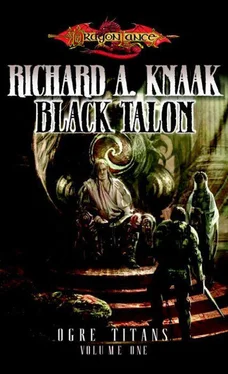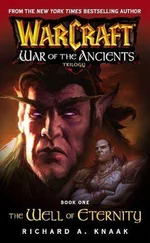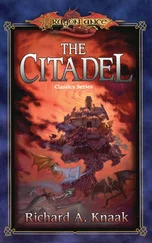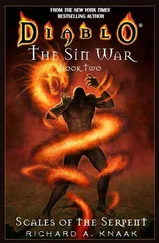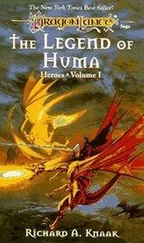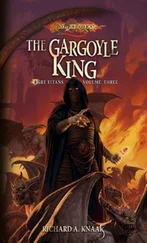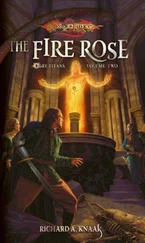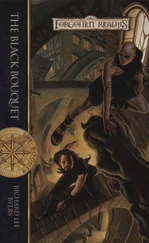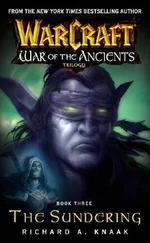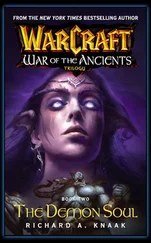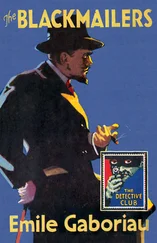Richard Knaak - The Black Talon
Здесь есть возможность читать онлайн «Richard Knaak - The Black Talon» весь текст электронной книги совершенно бесплатно (целиком полную версию без сокращений). В некоторых случаях можно слушать аудио, скачать через торрент в формате fb2 и присутствует краткое содержание. Жанр: Фэнтези, на английском языке. Описание произведения, (предисловие) а так же отзывы посетителей доступны на портале библиотеки ЛибКат.
- Название:The Black Talon
- Автор:
- Жанр:
- Год:неизвестен
- ISBN:нет данных
- Рейтинг книги:5 / 5. Голосов: 1
-
Избранное:Добавить в избранное
- Отзывы:
-
Ваша оценка:
- 100
- 1
- 2
- 3
- 4
- 5
The Black Talon: краткое содержание, описание и аннотация
Предлагаем к чтению аннотацию, описание, краткое содержание или предисловие (зависит от того, что написал сам автор книги «The Black Talon»). Если вы не нашли необходимую информацию о книге — напишите в комментариях, мы постараемся отыскать её.
The Black Talon — читать онлайн бесплатно полную книгу (весь текст) целиком
Ниже представлен текст книги, разбитый по страницам. Система сохранения места последней прочитанной страницы, позволяет с удобством читать онлайн бесплатно книгу «The Black Talon», без необходимости каждый раз заново искать на чём Вы остановились. Поставьте закладку, и сможете в любой момент перейти на страницу, на которой закончили чтение.
Интервал:
Закладка:
“Iskar’ai!” the legions of onlookers shouted. “Iskar’ai!” The ogre word for victory was precious, used only on rare occasions and celebrated for its meaning. Victory was another word for power, and power was the means of domination and rule.
Horns blared from the walls and from the roofs of buildings, where kilted, breastplated sentries announced the approach of the Grand Lord Golgren to the crowds ahead. In the column warriors beat on leather drums in rhythm with the marching of the soldiers. More than four thousand fighters were following Golgren, which was not even his entire army. In the past year, a hundred chieftains and lesser khans had added their oaths of fealty to those already in his service. He had large forces scattered outside the city and all around his realm.
In the distance, several high towers loomed. They, too, had been repaired-completely, it appeared-but even then figures dangling from ropes were altering the vast reliefs carved outside the upper levels. Golgren revealed nothing of his inner thoughts, but his eyes flickered at the sight.
Those towers-and much of the initial work on the capital’s reconstruction-had been instigated not by Golgren, but rather by the Titans . Before he had first set foot in Garantha, before he had taken the name Golgren, the city had begun its resurrection under the guidance of the Titans. It was the Titans who initially inspired the people to restore the towers, and they had had their own symbols and images carved on them. Both the grand khan and his counterpart in Blode had bowed to the Titans. The latter, Donnag, had willingly taken part in their dark rituals, eventually becoming one of the Titans himself.
The entire city had bowed to the Titans. But that time, like the era of the High Ogres, was past, Golgren reflected. He was master. The grand khan was a miserable toady who knew that he survived only at the whim of his former minion. Golgren did not give him much thought. But Donnag, believing in Titan superiority, had challenged the rise of the upstart Golgren-challenged and lost. His fate-his sentence-was an example to all the Titans; no one dared cross the grand lord.
But still Golgren knew that the Titans existed to undermine him. They would do so again and again.
Surrounded by jubilant crowds, the procession moved through the city. Ogres appreciated strength, and Golgren represented a strength that seemed destined to rise and rise. He had brought a pride to the race, and he had done it, for the most part, with cunning and the strength of arms. The people respected and feared him differently than they did the Titans. For all his mixed blood, Golgren knew that they accepted him as one of themselves-unlike his sorcerous rivals, who were regarded as aloof, apart. That did not mean that the ogre masses would not turn on Golgren if at some point he revealed weaknesses. That was life among ogres-harsh choices and mercurial loyalties.
The banner of the severed hand fluttered on buildings throughout Garantha. Golgren’s image also appeared here and there-more and more, over time-as reliefs carved into the walls of buildings more recently built and clearly the fine work of artisans who were not ogres. Indeed, as the grand lord neared the palace, he caught a glimpse of two ragged figures at work on a ten-foot-high reproduction of his profile. The image was more refined than the actuality, but Golgren did not mind.
The two hollow-eyed sculptors were toiling as though their lives depended upon it, which they did. Like Idaria, they were elves, and the niceties of their existence depended upon their value to the grand lord. Though they looked worked to death, they lived better than many of their fellows. That was because their talent was useful to Golgren. He wanted his face plastered all over the ogre lands; that pair was one of many helping to spread his reputation and legend among his kind.
The guard standing watch over the sculptors noted Golgren’s gaze upon them and immediately began whipping the elves to work harder. Golgren frowned and signaled one of his officers.
“He whips too hard. They must survive in order to do my work.”
The other ogre nodded and went off to warn the guard of his overzealousness.
“Thank you,” Idaria murmured.
Gazing straight ahead without acknowledging her, Golgren shrugged. He had not done it out of any mercy or sympathy for her people.
Ogres continued to throng the streets, many of them banging clubs and the ends of spears on the stone path. Golgren slowed to give his people one last clear look at their leader before he entered through the gates. Although he was no longer visible to the populace, their cheering and shouting did not diminish, for the grand lord was trailed by impressive ranks of armored warriors, themselves followed by the vanquished, the defeated remnants of the ogre horde bent low from exhaustion, whippings, and their heavy chains. Their fates would make them envy the elf slaves.
After the vanquished would march more of his legions, so many that he would astonish the onlookers with the minimal losses his army had suffered. Golgren had not been hesitant about borrowing fighting methods from both the Uruv Suurt and the Solamnics when it came to training and preparing his warriors. That their training was a rough blend of those two formidable foes was intentional. Too many generations had passed in which the ogres had been slaughtered by superior disciplined and trained forces. He would not let that happen again.
A harsh memory from his early days flashed through his mind, causing the grand lord to jerk on the reins of his horse. Images of bloody ogre corpses, of a burning village, overwhelmed him suddenly. As his mount came to an abrupt halt, he sensed the others’ curiosity at his unexpected behavior. But no one uttered any sound; none expected any explanation from him. They merely waited until Golgren prodded the horse with his heels, urging the animal on and pretending nothing had happened. Wise enough to steer clear of their master’s ill moods, Khleeg and the other officers had also briefly halted, and they followed suit, resuming the procession, like obedient hounds.
Only Idaria betrayed any hint of interest. Her glittering eyes narrowed briefly as she stared at the grand lord’s back, but just as quickly she resumed her downward, subservient gaze.
Zharang had been the grand khan for only a brief time when he had seen the value of the short half-breed who had come into his court offering his services. Since the mantle of rule for an ogre khan rarely exceeded a handful of years, Zharang had been crafty enough to realize that Golgren had obvious ambitions and that they could profit him in the short term. His new grand lord would help to eliminate potential threats and rivals then die when his master saw fit.
But that was not what happened. The assassins Zharang had ultimately recruited to kill Golgren had instead embraced his cause, and when they deserted him, so did many of his other most powerful supporters. As the squat grand khan munched on some scorched goat, his bloodshot eyes observed the nearly one hundred guests seated on the cushions in the chamber. It was very likely that, even right then, more than one of his guests was spying for the half-breed and others were spying on the spies to make certain they remained loyal to Golgren.
Even his own guards could no longer be trusted. As grease dribbled down onto Zharang’s already-soiled emerald and gold robes, he awaited the inevitable entrance of the thorn in his side.
A moment later, the thick mastark curtains that separated the feasting room from the entrance chamber swung aside. A hirsute, hefty figure whom the grand khan recognized as the one called Khleeg was the first to barge into the room. The chained musicians, all from Silvanost, ceased playing their silver horns and golden lyres. Several of the guests-all dressed in colorful pillaged elven finery that had been resewn to fit their larger, bulkier-if not corpulent bodies-paused to gaze in expectation at the new arrival. Zharang ignored the lack of respect shown by Khleeg’s abrupt entrance as he was forced to ignore so much else. Khleeg wore the emblem of the severed hand on his upper chest. His loyalty was clear.
Читать дальшеИнтервал:
Закладка:
Похожие книги на «The Black Talon»
Представляем Вашему вниманию похожие книги на «The Black Talon» списком для выбора. Мы отобрали схожую по названию и смыслу литературу в надежде предоставить читателям больше вариантов отыскать новые, интересные, ещё непрочитанные произведения.
Обсуждение, отзывы о книге «The Black Talon» и просто собственные мнения читателей. Оставьте ваши комментарии, напишите, что Вы думаете о произведении, его смысле или главных героях. Укажите что конкретно понравилось, а что нет, и почему Вы так считаете.
